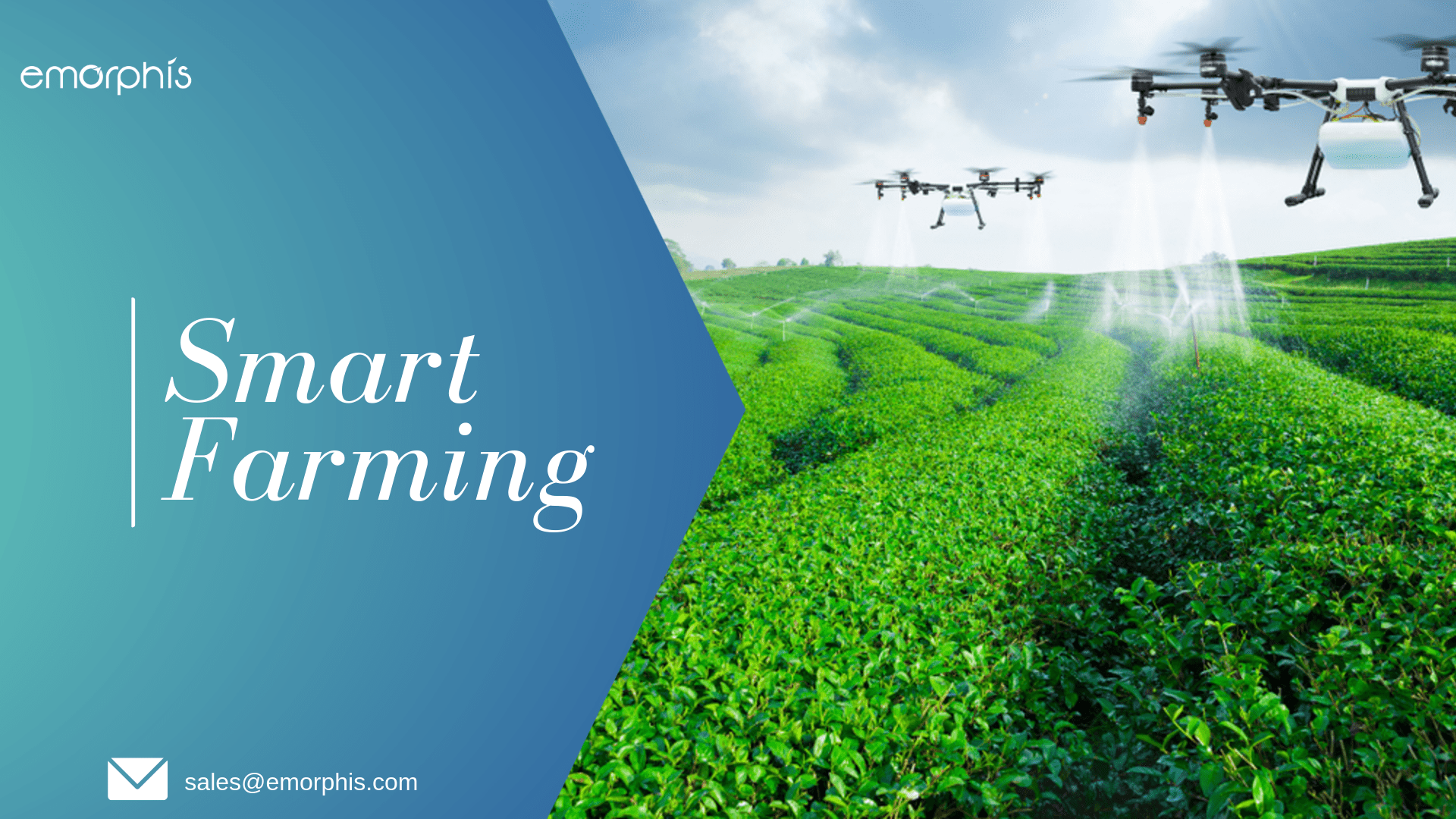
```html
# Revolutionizing Cultivation: Unveiling Smart Farming Solutions
Imagine if you could predict the weather with pinpoint accuracy, monitor your crops from a smartphone, and even automate the entire process of harvesting. Welcome to the world of smart farming technology—an agricultural revolution that promises enhanced efficiency and productivity. But what is smart farming technology, exactly? Let's delve into this fascinating realm of agricultural solutions and explore how it's transforming the way we grow our food.
## What is Smart Farming Technology?
Smart farming technology leverages modern agricultural innovations to streamline and enhance agricultural processes. From precision agriculture and drone technology to IoT sensors and data analytics, these technologies are pivoting the field towards a futuristic approach. But why should we care about these advancements? Think of it this way: what if you could provide the exact amount of water and nutrients your crops need, at the precise time they need it? This kind of efficiency, powered by smart farming, means healthier crops, minimal waste, and maximized yields.
## The Pillars of Smart Farming
To understand the full scope of smart farming, we need to look at the key components that make it possible.
### Precision Agriculture
Precision agriculture uses GPS and GIS technologies to map out your fields accurately. By analyzing soil composition, weather patterns, and crop health, precision agriculture helps you make data-driven decisions. For instance, you can tailor your irrigation and fertilization strategies based on specific needs of different parts of your field. Isn't that better than a one-size-fits-all approach?
### IoT and Sensors
The Internet of Things (IoT) and sensors play a crucial role in smart farming. These devices collect real-time data on soil moisture, pH levels, temperature, and humidity. Think of them as the eyes and ears of your farm, constantly monitoring conditions and reporting back to you. Companies like [[sensor-startups.com]](http://sensor-startups.com) are leading the way in developing advanced sensors that make this possible.
### Autonomous Vehicles and Drones
Autonomous vehicles and drones are taking over repetitive and labor-intensive tasks. Drones equipped with cameras can survey vast areas quickly, providing aerial images that help in identifying pests, disease outbreaks, and irrigation problems. Autonomous tractors and harvesters ensure that farming tasks are carried out efficiently and without the need for constant human intervention. Do these advancements sound like something out of a sci-fi movie? Well, welcome to your future!
### Data Analytics and AI
Data analytics and artificial intelligence (AI) are the brains behind smart farming. By analyzing vast amounts of data collected from various sources, AI algorithms can predict crop yields, forecast weather patterns, and even suggest the best times for harvesting. Consider companies like [[Climate-First]](https://climatefirst.io) that specialize in AI-powered agricultural predictions, making farming smarter and more sustainable.
## Benefits of Smart Farming Technology
The benefits of smart farming technology are numerous and far-reaching. Let's explore some of the key advantages.
### Increased Efficiency
Smart farming solutions dramatically increase agricultural efficiency. By using precision methods, you can reduce waste and ensure that resources are used optimally. This means lower costs and higher returns for farmers. Isn’t that what every farmer dreams of?
### Enhanced Crop Health
With real-time monitoring and data analytics, farmers can swiftly respond to issues like pests, diseases, and nutrient deficiencies. The result? Healthier crops that yield better produce. It's like having a personal doctor for your plants.
### Sustainability
Smart farming embraces sustainability like never before. By using precise amounts of water, fertilizers, and pesticides, farmers reduce their environmental footprint. Imagine reducing water usage by as much as 50% — a significant leap towards sustainable agriculture.
### Improved Productivity
Automation and AI-driven recommendations lead to improved productivity. Farmers can focus on strategic tasks while machines handle the repetitive ones. This division of labor ensures that everything runs smoothly and efficiently.
## Embracing the Future: How to Get Started with Smart Farming
Ready to dive into the world of smart farming? Getting started might seem daunting, but it's simpler than you think. You can begin with basic IoT sensors to monitor soil health and gradually move on to drones and autonomous vehicles. Partner with experts and invest in agricultural technology that suits your needs. Remember, the goal is to enhance your agricultural solutions and work smarter, not harder.
## Conclusion
So, are you ready to embrace the future of agriculture with smart farming technology? By leveraging precision agriculture, IoT sensors, drones, AI, and data analytics, you can transform your farm into a cutting-edge operation that maximizes efficiency, productivity, and sustainability. Imagine a world where every farmer has the tools to feed the planet sustainably. That world is not far off, thanks to smart farming solutions. Take the first step today, and let's grow the future together.
## Frequently Asked Questions
##### 1. What is the most essential technology for smart farming?
The most essential technology for smart farming is IoT sensors, as they provide real-time data on soil, weather, and crop health, forming the backbone of decision-making.
##### 2. How does smart farming enhance agricultural efficiency?
Smart farming enhances agricultural efficiency by using precision methods, real-time data, and automation to reduce waste and optimize resource use.
##### 3. What are the key components of smart farming technology?
The key components of smart farming technology include precision agriculture, IoT sensors, autonomous vehicles, drones, and AI-driven data analytics.
##### 4. Is smart farming beneficial for small-scale farmers?
Yes, smart farming can be highly beneficial for small-scale farmers by providing cost-effective solutions to monitor and manage their farms more efficiently.
##### 5. How can smart farming solutions contribute to sustainability?
Smart farming solutions contribute to sustainability by accurately utilizing water, fertilizers, and pesticides, thereby reducing the environmental impact and promoting eco-friendly practices.
```


0 Response to " Smart Farming Solutions"
Post a Comment